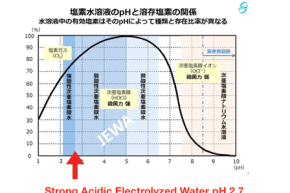Why Does Drinking Water Have Strange Smells and How to Fix It
Last updated: 29 Dec 2024 | 3979 Views |

Why Does Drinking Water Have Strange Smells and How to Fix It
Sometimes when we drink plain or filtered water, we may notice strange tastes or smells, which might make us wonder if the water is still safe to drink. What causes these smells and tastes, and how can we fix them? Let's find out.
Testing the Source of the Smell in Drinking Water
- Container Used for Water: The plastic or glass container used for storing water may cause problems, such as lingering smells or odors from water left for too long.
- Check if the water from the filter has any smell. If the new water has no smell, switch to using a proper container, such as a glass bottle or a BPA-free plastic bottle.
- Water from the Filter:
- Let the water run for about 2-3 minutes to allow it to circulate through the filter system.
- Be cautious of smells from water stored in the refrigerator, as they may pick up odors from food.
Causes of Smell in Drinking Water
- Low-Quality Plastic Bottles: Some plastics may release smells when they come into contact with water or when exposed to sunlight.
- Absorption of External Odors: Clean water can absorb odors from its surroundings, such as from the refrigerator or storage area.
- Bacteria in Containers: Containers that are not cleaned properly may accumulate bacteria that cause odors.
- Minerals in the Water: Mineralized water, such as spring water or Kangen water, may have slight smells due to reactions with air or containers.
How to Prevent Water from Having a Smell
- Change the filter according to the recommended schedule.
- Store water in a cool place and away from direct sunlight.
- Only produce enough water for short-term use, not storing it for more than 1-2 days.
- Regularly clean the water containers.
- Use high-quality containers, such as glass or BPA-free plastic bottles.
Why Does Everyone Perceive Water Smells Differently?
- Genetics: Variations in taste receptor genes make some people more sensitive to certain tastes or smells than others.
- Health Conditions: Certain illnesses, like allergies or colds, can affect taste perception.
- Certain Medications: Some medications may alter taste perception, making smells stronger, weaker, or metallic.
- Lifestyle Habits: Smoking or consuming spicy foods can influence taste sensitivity.
- Cultural Influences: Exposure to different flavors and cuisines can shape how individuals perceive tastes and smells.
Is Water with a Smell Dangerous?
Water with strange smells doesn't necessarily mean it is "bad" or "unsafe" to drink, but it is important to check if the water source and the filtration system are in good condition.
Safety of Drinking Water from a Filter
Tap water in Thailand, processed and treated according to standards, is usually safe to drink. If used with a high-quality water filter, such as those certified to NSF or ISO 13485 standards, it can further remove contaminants like chlorine, sediments, and residual chemicals, ensuring the water is cleaner and safer to consume.
Understanding the causes and solutions for odors in drinking water allows us to enjoy water confidently and safely.
If You Are Concerned About the Quality of Your Drinking Water
If you are unsure about the quality of the water you drink, you can have it tested at a laboratory (Lab) or a service center specializing in water testing.
Additionally, you can contact us to help coordinate the water testing. The full-quality water test service, following the Ministry of Public Health's standards, costs approximately 15,000 Baht, and the testing process takes about 7-15 business days.



